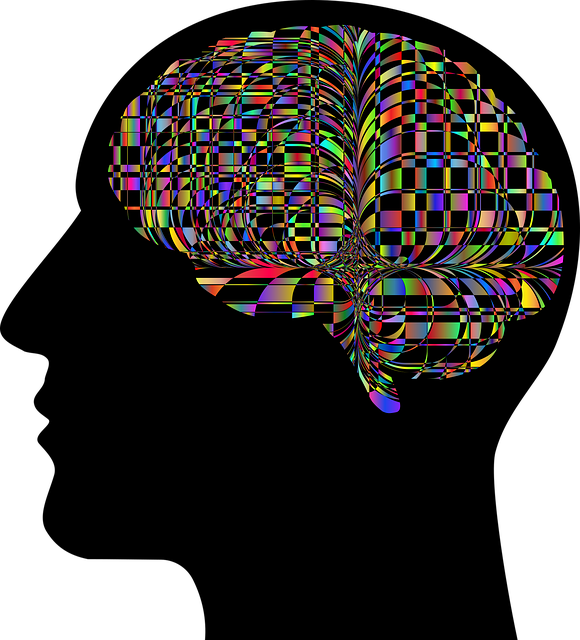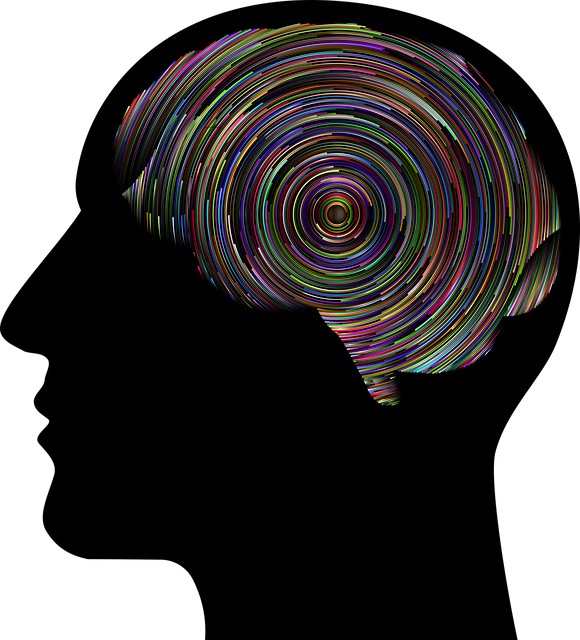Wheat Ridge Chronic Illness Therapy focuses on improving mental health diagnosis accuracy through a multi-faceted approach. They combine advanced tools like neuroimaging, AI algorithms, and digital platforms with evidence-based practices and emotional intelligence training for therapists. Continuous professional development, community outreach, and patient-centered care enhance assessment abilities. By integrating technology, Empathy Building Strategies, and Conflict Resolution Techniques, Wheat Ridge Chronic Illness Therapy provides comprehensive care, improving patient outcomes and quality of life.
Mental illness diagnosis accuracy is paramount in effective treatment, yet challenges persist. This article explores strategies aimed at enhancing diagnosis efforts at Wheat Ridge Chronic Illness Therapy, a leading mental health facility. We delve into understanding the complexities of mental health diagnosis, enhancing tools and techniques, training professionals for improved assessment, integrating technology for efficiency, and adopting patient-centered approaches to boost diagnostic validity and trust.
- Understanding Mental Health Diagnosis Challenges at Wheat Ridge Chronic Illness Therapy
- Enhancing Diagnostic Tools and Techniques for Accuracy
- Training Professionals to Improve Assessment and Compassion
- Integrating Technology for Efficient and Effective Evaluation
- Patient-Centered Approaches to Ensure Diagnostik Validity and Trust
Understanding Mental Health Diagnosis Challenges at Wheat Ridge Chronic Illness Therapy

At Wheat Ridge Chronic Illness Therapy, understanding the complexities of mental health diagnosis is paramount to delivering effective treatment. The field faces significant challenges, with one major hurdle being the vast spectrum of mental illnesses and their often overlapping symptoms. This complexity demands a nuanced approach from therapists and professionals who must navigate not just diagnostic criteria but also individual patient factors and cultural contexts.
Additionally, the persisting stigma surrounding mental illness creates barriers to accurate diagnosis and treatment-seeking behavior among individuals. Wheat Ridge Chronic Illness Therapy recognizes that breaking down this stigma is crucial for fostering an environment where patients feel comfortable discussing their experiences and seeking help without fear of judgment or discrimination. Incorporating strategies like emotional intelligence into therapy practices has proven effective in enhancing patient-therapist relationships, enabling more accurate assessments and tailored treatment plans. Moreover, Risk Management Planning for Mental Health Professionals plays a vital role in ensuring ethical and competent care delivery, ultimately improving diagnostic accuracy and patient outcomes.
Enhancing Diagnostic Tools and Techniques for Accuracy

In recent years, significant efforts have been directed at enhancing diagnostic tools and techniques for mental illness to improve accuracy. This includes advancements in assessment methods, such as integrating neuroimaging technologies and artificial intelligence algorithms, which can provide more objective measurements of brain function and structure associated with various mental health conditions. Additionally, evidence-based practice guidelines are being refined and updated regularly to ensure healthcare professionals have access to the latest research-supported interventions. These improvements aim to reduce misdiagnosis rates and misalignment between symptoms and treatment plans, thereby enhancing patient outcomes, particularly in centers like Wheat Ridge Chronic Illness Therapy.
The role of Emotional Well-being Promotion Techniques and Mental Health Policy Analysis and Advocacy is crucial in this context. By implementing policies that support self-esteem improvement and access to quality mental health care, we can foster more accurate diagnoses and effective treatments. These efforts collectively contribute to a holistic understanding and management of mental illness, ensuring individuals receive the most appropriate care tailored to their unique needs.
Training Professionals to Improve Assessment and Compassion

At Wheat Ridge Chronic Illness Therapy, we recognize that accurate mental illness diagnoses are only as good as the professionals conducting them. That’s why we place a strong emphasis on training our therapists to not only enhance their assessment skills but also to cultivate more compassionate approaches. This involves comprehensive education on various mental health conditions, teaching effective communication techniques, and promoting an empathetic understanding of each client’s unique experiences.
Through ongoing professional development programs, workshops, and peer discussions, we aim to create a supportive environment where therapists can learn from one another. Additionally, we encourage the implementation of community outreach programs that not only raise awareness about mental health but also reduce the stigma associated with seeking help. These efforts collectively contribute to improving diagnosis accuracy while fostering better self-care routine development for those facing mental illness challenges.
Integrating Technology for Efficient and Effective Evaluation

In recent years, integrating technology has emerged as a powerful tool to enhance mental health evaluations, aiming to improve diagnosis accuracy at places like Wheat Ridge Chronic Illness Therapy. Digital platforms and applications offer efficient ways to assess symptoms, track patient progress, and provide personalized interventions. For instance, online therapy sessions equipped with advanced analytics can capture subtle changes in a patient’s mood, behavior, or speech patterns, leading to more precise diagnoses.
This technological advancement complements traditional therapeutic methods, such as Empathy Building Strategies, which foster deeper connections between patients and therapists. Additionally, digital tools can facilitate early identification of mental health issues like Depression Prevention through regular check-ins and automated screening questionnaires. By combining these approaches, therapists at Wheat Ridge Chronic Illness Therapy can offer more comprehensive care, ensuring better outcomes and improved quality of life for their clients. Furthermore, learning Conflict Resolution Techniques through virtual platforms can empower patients with valuable coping skills, enabling them to navigate challenging situations more effectively.
Patient-Centered Approaches to Ensure Diagnostik Validity and Trust

In the pursuit of enhancing mental illness diagnosis accuracy at Wheat Ridge Chronic Illness Therapy, patient-centered approaches are pivotal. These methods focus on building rapport and understanding the individual’s unique experiences, symptoms, and personal context. By fostering an environment of trust and collaboration, therapists can ensure that diagnostic assessments align with the patient’s lived reality. This involves encouraging open communication, actively listening to their concerns, and validating their emotional intelligence, which is crucial for establishing a safe space where individuals feel comfortable sharing intimate details about their mental wellness journeys.
Embracing patient-centered care not only boosts confidence in the therapeutic process but also strengthens the validity of diagnoses. It allows therapists to consider alternative explanations for symptoms, incorporate personal narratives into assessments, and tailor interventions to address specific needs. This holistic approach, which leverages emotional intelligence to build strong therapist-patient alliances, is a game-changer in ensuring accurate mental health evaluations, ultimately leading to more effective treatment plans.
Mental illness diagnosis accuracy is a multifaceted issue, as evidenced by the challenges faced at Wheat Ridge Chronic Illness Therapy. To address this, we’ve explored several strategies including enhancing diagnostic tools and techniques, improving professional training, integrating technology for efficient evaluation, and adopting patient-centered approaches to ensure validity and trust. By implementing these efforts, mental health professionals can strive for more accurate diagnoses, ultimately improving patient outcomes and care at Wheat Ridge Chronic Illness Therapy and beyond.










